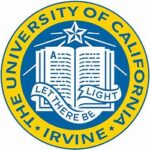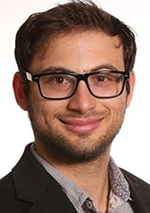 By Rabbi Daniel Levine
By Rabbi Daniel Levine

IRVINE, California — If one were to hear about the modern university for the first time—steeped in its ideals of liberalism, open inquiry, and good-faith debate about ideas—they would be forgiven for imagining that this institution would be the best in human history in terms of achieving these goals. Yet, this past year highlighted that indeed the opposite has happened. Universities across the country have largely become places of radicalism, closed-mindedness, and groupthink—culminating from the top down with professors leading the charge.
A liberal education should teach that the world is complicated. Throughout both history and society today, there exists a multiplicity of opinions about life’s most important questions, and this is not only a good thing but a necessary acknowledgment to discover truth. In this ideal makeup of the university, students would spend years engaging with these ideas, with professors constantly pushing them to question their conclusions about everything from politics to religion.
This is the opposite of what this past year has highlighted.
Instead of being the well-reasoned professionals who could help mitigate the pernicious campus conversation surrounding Israel and Palestine, many professors were there to dump fuel on the fire. Between signing open letters supporting Hamas, canceling classes to urge students to join anti-Israel protests and using their position of authority in the classroom to propagate a black-and-white narrative about a complex issue, these professors are guilty of malpractice.
As an educator on campus, I strive for good pedagogy. In my classroom, no one knows my personal views, even as we discuss hot-button issues such as religion, history, and politics. Instead of using my position of power in the classroom to bully my views home, I use my position to ensure that all students and all views (even those I vehemently disagree with) get a fair shot at discussion. Students are often surprised when they eventually discover my true opinions on the ideas we engage in class—usually long after the quarter ends.
As a teacher of Jewish studies and Rabbi on campus, I have a long tradition to draw upon. From the earliest days of Jewish scholarship, we have not only allowed but demanded a multiplicity of opinions on topics ranging from law to theology to politics. From the thousands of pages in the Talmud, the exciting philosophical debates of the medieval period, and the dozens of ways that Jewish identity can manifest in the modern era, our tradition understands that the true way to build a community is through an open clash of ideas instead of a top-down decree.
For the university to survive and meet the mounting challenges of the 21st century—not just for Jews but for society in general—it must reclaim its identity as a bastion of open inquiry and clash of ideas instead of the activist center it has become.
This is the work I have dedicated my career to. It is why I facilitated a widely engaged with Reddit “Ask Me Anything” on the UCI subreddit. It is what I try to demonstrate in my podcast “JLife with Daniel,” and it is how I run any educational endeavor I am a part of, from informal coffee conversations to the formal art of classroom teaching.
In the end, the real test for universities will be whether they can return to their true mission: fostering a space where every idea is scrutinized, every voice heard, and every student prepared to navigate the complexities of the world with an open and critical mind.
Links: Reddit, Podcast, and other Podcasts
*
Rabbi Daniel Levine is a Hillel rabbi at the University of California at Irvine and for the last three years was a lecturer in the Jewish Studies program.
A ray of hope in the endowed anarchy
of higher education